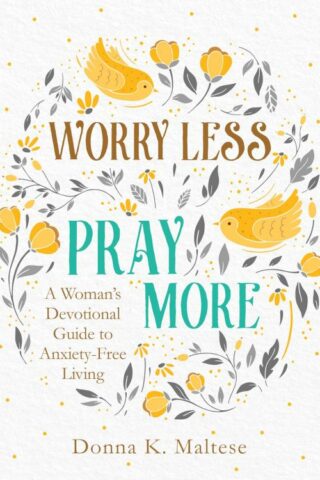
Ladrones Del Exito – (Spanish)
$14.99
“Es que el liderazgo y el exito no se construyen solo con carisma…Muchas veces, lo que destruye lo que construimos no son, necesariamente, los grandes, obvios y visibles enemigos, sino aquellos pequeos que no atendemos o eliminamos a tiempo”, escribe Adolfo Aguero Esgaib en su nuevo libro Ladrones del exito. De sus experiencias como empresario y pastor, el autor lanza una alerta contra los 10 “principios” que impiden a las personas alcanzar el exito que buscan. Hace un recorrido en cada uno, ayudando al lector a identificarlo dentro de si, explicando el efecto de cada uno: victimizacion, orgullo, ingratitud, trabajar solo, falta de vision, falta de caracter o caracter deformado, mediocridad, falta de empatia, irresponsabilidad y falta de integridad. Junto con esta concientizacion, encontramos las recomendaciones de manejo, soluciones y cambios para apresar a estos ladrones y capturar nuestro futuro.
“It is that leadership and success are not built only with charisma … Many times, what destroys what we build are not, necessarily, the big, obvious, and visible enemies, but those little ones that we do not attend or eliminate in time”, he writes Adolfo Aguero Esgaib in his new book Thieves of success. From his experiences as a businessman and pastor, the author warns against the 10 “principles” that prevent people from achieving the success they seek. He takes a tour of each one, helping the reader to identify it within himself, explaining the effect of each one: victimization, pride, ingratitude, working alone, lack of vision, lack of character or deformed character, mediocrity, lack of empathy, irresponsibility, and lack of integrity. Along with this awareness, we find the management recommendations, solutions, and changes to catch these thieves and capture our future.
in stock within 3-5 days of online purchase
SKU (ISBN): 9781641237376
ISBN10: 1641237376
Language: Spanish
Adolfo Esgaib
Binding: Trade Paper
Published: August 2021
Publisher: Whitaker House Publishers
Related products
-
Harnessing The Power Of Tension (Audio CD)
$29.99Add to cartThe word tension comes from the Latin word tendere, which means “to stretch.” It’s not a bad thing to be stretched in our careers, our parenting, our ministries, or our leadership. Without tension, we become stagnant and stop growing. In fact, we might even say that tension is both inevitable and, in many cases, desirable in life and leadership.
In Harnessing the Power of Tension: Stretched but Not Broken, international leadership consultant Sam Chand examines tension as it arises in and between the arenas of business, church, and family. The presence of tension isn’t a flaw in you or a threat from others. It’s not a problem to solve, but a strain to be used. When you develop this perspective and you encounter tension, you’ll be less confused and feel less guilty because you understand that tension isn’t the result of your error or flaw. You’ll experience less pressure to figure everything out and less compulsion to resolve it quickly and completely.
When we accept tension as a reality of life, we gain confidence and mental clarity when we encounter it. Our focus isn’t on getting rid of tension, but using it to create something better than before. We don’t walk on eggshells, afraid to say the wrong thing. We learn when to speak up, when to ask questions, when to listen, and when to let things go. As we relax in the middle of tension, we see people and situations more clearly, and we invite our families and teams into the process of creatively using tension in life and leadership.
-
Que Mueve Tu Escalera – (Spanish)
$15.99Add to cartWhat obstacles are blocking you?What is your biggest leadership challenge?If overcome successfully, what challenge is ready to springboard you toward your destiny?In What’s Shakin’ Your Ladder? Dr. Samuel Chand discusses fifteen challenges that are common to all leaders and teaches you how to successfully overcome them. Regardless of whether you are leading a new and developing organization or a Fortune 500 corporation, you will be confronted by the challenges of: FOCUS: Finding and maintaining what is importantCOMMUNICATION: Saying it in a way that everyone gets itDECISION MAKING: Understanding how we make decisions, so we can make them betterCHOOSING THE TEAM: Making critical decisions about who is on our teamCHANGE VS. TRANSITION: Intentionally planning transitions for smoother changeCONFLICT: Understanding the importance of health during conflictCONTROL VS. DELEGATION: Learning when to hang on and when to let goEXECUTION: Getting the job doneDr. Chand takes an in-depth look at each of these challenges (plus eight more) and provides practical advice on how to face and overcome the things that are blocking you from achieving your personal best.If you want to grow as a leader, this book is your guide
-
Culture Catalyst : Seven Strategies To Bring Positive Change To Your Organi
$24.99Add to cartCulture Catalyst: Seven Strategies to Bring Positive Change to Your Organization
“Culture–not vision or strategy–is the most powerful factor in any organization. It determines the receptivity of staff and volunteers to new ideas, unleashes or dampens creativity, builds or erodes enthusiasm, and creates a sense of pride or deep discouragement about working or being involved there. Ultimately, the culture of an organization–particularly in churches and nonprofit organizations, but also in any organization–shapes individual morale, teamwork, effectiveness, and outcomes.” -from Chapter One
Often, organizational leaders confuse culture with vision and strategy, but they are very different. Vision and strategy usually focus on products, services, and outcomes, but culture is about the people–an organization’s most valuable asset. Culture Catalyst: Seven Strategies to Bring Positive Change to Your Organization offers a practical resource for discovering the deficits in an existing organization’s culture, and includes the steps needed to assess, correct, and change culture from lackluster to vibrant and inspirational, so that it truly meets the needs of the organization.
Prominent leadership consultant Sam Chand describes the five easily identifiable categories of organizational culture (Inspiring, Accepting, Stagnant, Discouraging, and Toxic), and includes diagnostic methods that leaders can use to identify the particular strengths and needs of their organization’s culture. To help in this process, there is also a separate, free, online assessment tool (www.samchandculturesurvey.com).
Once an organization’s culture is clearly identified, leaders can put in place a strategy for applying the seven keys of CULTURE (Control, Understanding, Leadership, Trust, Unafraid, Responsive, and Execution) that will make their culture one that stimulates people to be and do their very best and ultimately reach their highest goals.
-
Harnessing The Power Of Tension
$24.99Add to cartThe word tension comes from the Latin word tendere, which means “to stretch.” It’s not a bad thing to be stretched in our careers, our parenting, our ministries, or our leadership. Without tension, we become stagnant and stop growing. In fact, we might even say that tension is both inevitable and, in many cases, desirable in life and leadership.
In Harnessing the Power of Tension: Stretched but Not Broken, international leadership consultant Sam Chand examines tension as it arises in and between the arenas of business, church, and family. The presence of tension isn’t a flaw in you or a threat from others. It’s not a problem to solve, but a strain to be used. When you develop this perspective and you encounter tension, you’ll be less confused and feel less guilty because you understand that tension isn’t the result of your error or flaw. You’ll experience less pressure to figure everything out and less compulsion to resolve it quickly and completely.
When we accept tension as a reality of life, we gain confidence and mental clarity when we encounter it. Our focus isn’t on getting rid of tension, but using it to create something better than before. We don’t walk on eggshells, afraid to say the wrong thing. We learn when to speak up, when to ask questions, when to listen, and when to let things go. As we relax in the middle of tension, we see people and situations more clearly, and we invite our families and teams into the process of creatively using tension in life and leadership.

 Stand Firm In The Faith
Stand Firm In The Faith
 Loyal In His Love
Loyal In His Love
 Be Rich Ephesians (Revised)
Be Rich Ephesians (Revised)
 Merge For Marriage
Merge For Marriage
 I Will Give Thanks
I Will Give Thanks
 New Testament With Psalms And Proverbs
New Testament With Psalms And Proverbs









Reviews
There are no reviews yet.